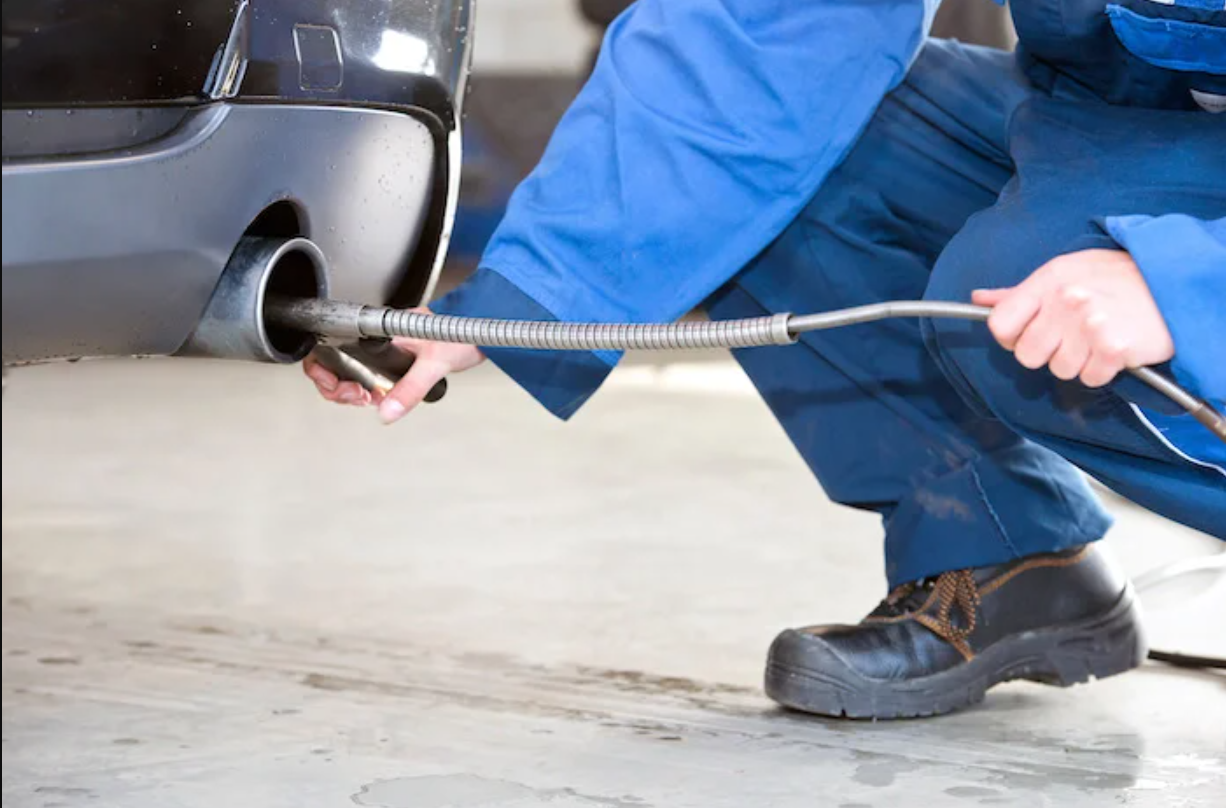The California Smog Check: Your Complete Guide to Emissions Testing
Author
Bahram Najafzadeh
Date Published

If you live in California, the term "smog check" is a familiar one. It's a key part of vehicle ownership, and for good reason: California's Smog Check Program is a landmark initiative designed to combat air pollution and ensure that the millions of vehicles on the road are running as cleanly as possible.
Whether you're a new resident, buying a used car, or just preparing for your biennial registration renewal, understanding the smog check process is crucial. This guide will demystify the program, from its purpose and key requirements to costs, exemptions, and what to expect at the testing station.
What is a Smog Check?
A smog check is a mandatory emissions inspection that verifies your vehicle meets the state's air quality standards. The primary goal is to identify and repair vehicles that are emitting excessive levels of pollutants that contribute to smog, such as:
Hydrocarbons (HC): Unburned fuel that escapes the engine.
Carbon Monoxide (CO): A toxic gas produced by incomplete combustion.
Nitrogen Oxides (NOx): Gases that are a major component of smog.
The program has been a major success, helping to significantly reduce air pollution in California since its implementation.
The Smog Check Process: What to Expect
The smog check procedure is straightforward and is performed at one of the over 7,000 licensed Smog Check stations across the state. The specific test your vehicle undergoes depends on its model year:
For vehicles model year 2000 and newer: The inspection primarily involves an On-Board Diagnostics (OBD) system check. The technician will connect a computer to your vehicle's OBD-II port to read for any stored emissions-related codes. If your "Check Engine" light is on, your vehicle will automatically fail.
For vehicles model year 1999 and older: These vehicles are tested using the BAR-97 Emission Inspection System, which includes a tailpipe emissions test. A probe is inserted into the exhaust to measure the actual pollutants coming from the vehicle.
In both cases, a visual inspection is also performed to ensure that all emissions components, such as the catalytic converter and gas cap, are present and appear to be in good working order.
Who Needs a Smog Check?
A smog check is required for vehicle registration in California under a few key circumstances:
Biennial Inspection: Most vehicles manufactured in 1976 or later must get a smog check every two years as part of their registration renewal. The DMV will notify you on your renewal notice if an inspection is required.
Change of Ownership: When a vehicle is bought or sold, the seller is legally responsible for providing the buyer with a valid smog certificate. The certificate must be issued within 90 days of the sale.
Out-of-State Vehicles: If you are bringing a vehicle into California from another state, it must pass a smog check for initial registration, regardless of its age.
Smog Check Exemptions: Who Gets a Pass?
Not all vehicles are required to get a smog check. The most common exemptions include:
Newer Vehicles: Gasoline-powered vehicles that are eight model years old or newer are exempt from the biennial smog check. Instead, their owners pay an annual smog abatement fee. This exemption does not apply to out-of-state vehicles being registered for the first time in California.
Older Vehicles: Gasoline-powered vehicles from 1975 or older are exempt from all smog check requirements.
Electric Vehicles (EVs): Fully electric vehicles produce zero tailpipe emissions and are completely exempt.
Diesel Vehicles: Diesel-powered vehicles from 1997 or older or those with a Gross Vehicle Weight Rating (GVWR) of over 14,000 lbs are exempt from the standard smog check.
Motorcycles and Trailers: These vehicles are not subject to the smog check program.
Understanding Smog Check Costs and the STAR Program
The cost of a smog check is not regulated by the state, so it can vary from one station to another. On average, you can expect to pay anywhere from $40 to $80 for the inspection itself. There is also a state-mandated Smog Certificate Fee of $8.25 that is charged for every vehicle that passes the test.
The STAR Program is a key part of California's system. The Bureau of Automotive Repair (BAR) certifies certain stations as "STAR Stations" to perform more rigorous inspections. If your DMV notice says you must go to a STAR station, it means your vehicle has been identified as a high-polluter or was selected as part of a random sample.
How to Prepare for Your Smog Check
A little preparation can go a long way to ensure you pass the first time:
Clear the Check Engine Light: If your Check Engine Light is on, get it diagnosed and repaired before your test, as it will cause an automatic failure.
Drive Before You Test: Drive your vehicle for at least 20 minutes before the inspection to ensure the engine and catalytic converter are at their optimal operating temperature.
Perform Routine Maintenance: An oil change and a new air filter can help your engine run cleaner.
By understanding the rules and preparing your vehicle, you can make the smog check process a simple and stress-free part of your life in California.

Learn about the average cost of a California smog check. Understand what factors influence the price and how to save money on your vehicle's test.

Discover California's smog check exemptions. Learn if your car, from new models to out-of-state, classics, and EVs, is exempt from testing.